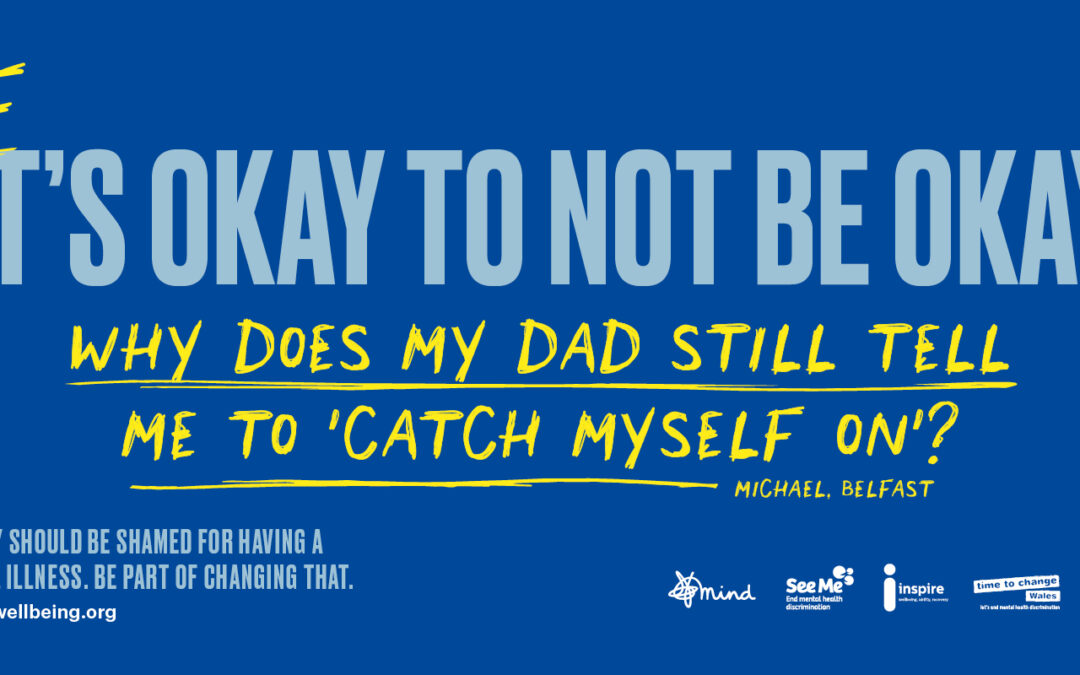A newly published poll has revealed how people in Northern Ireland perceive mental illness.
The survey, carried out by Censuswide on behalf of the UK Anti-Stigma Alliance – a partnership between mental health charities from across the United Kingdom – found that 64% with experience of mental ill health have felt shame because of it, while 55% of respondents think that the level of related stigma has decreased over the last five years.
In response to figures highlighted by this research, the alliance has launched the If It’s Okay campaign, which focuses on the voices of individuals with lived experience of shame stemming from mental illness.
“It’s okay not to be okay” is one of the most well-used lines in mental health campaigning. But, for many facing mental illness, this does not always ring true.
The partnership is now calling on people to mean it when they say, “It’s okay not to be okay”. It is also appealing to the public to challenge shame and discrimination directed against those living with mental health diagnoses. It aims to understand what the “It’s okay…” phrase might actually mean for a person living with mental illness.
Elsewhere, the study reveals that 14% of those polled would be concerned about working alongside someone who is living with mental illness. A majority (53%) agrees that people with mental ill health are negatively portrayed in the media and a similar portion of the population (54%) believes that there is still a great deal/fair amount of shame associated with the subject.
Seven in 10 (70%) feel that society should be more sensitive when talking about mental health, so as to avoid upsetting or shaming others.
The findings highlighted concerning attitudes too. A quarter (26%) of respondents consider “Totally OCD” an acceptable everyday term; 27% expressed the same view about the word “Crazy”. “Nuts” (24%) and “A bit mental” (21%) followed closely behind.
These findings cement the view that everyone in Northern Ireland has a role to play in ending shame around mental illness and that the language we use in day-to-day life can very much affect how friends, family members and peers view themselves.
Kerry Anthony MBE, CEO of Inspire, said:
“Inspire supports over 25,000 people a year and many of them live with serious mental illnesses. We hear about how their loved ones, communities and even their GPs can make them feel ashamed. But we also know about how they feel ashamed of themselves.
“This campaign is about challenging the narrative that many of us know and employ so often. We aren’t saying that the phrase ‘It’s okay not to be okay’ is wrong. However, the question we’re asking is this: if it’s okay not to be okay then why are people still encountering shame and discrimination around their mental health diagnoses?
“We are here to say that living with mental ill health does not mean that they are alone. Nor should they feel shame. We are here to help and support them.
“As a society, we have a long way to go. Over half the population believes that mental illness and shame are linked. We want to send a clear message that nobody should be ashamed of their mental ill health.
“By reflecting on our own attitudes and behaviours, we can develop self-awareness. Whether it’s thinking about the language we use, educating ourselves or reaching out for support, we can all play a role in changing lives for the better.”
For information about If It’s Okay, including advice and information for anyone living with mental ill health, click here. Follow the conversation on social media, via #IfItsOkay.
The Anti-Stigma Alliance comprises Inspire, See Me Scotland, Time to Change Wales and Mind.
